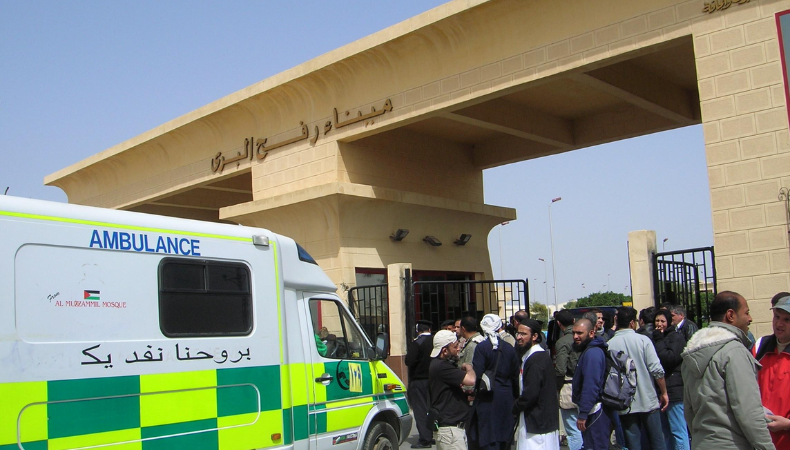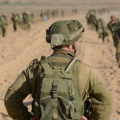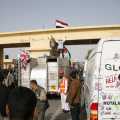A Reason to Argue? Why the Rafah Border Crossing is Crucial for the Middle East

Long a focal point of geopolitical conflict and humanitarian concern, the Rafah Border Crossing stands on Egypt’s southern edge of the Gaza Strip. For the residents of Gaza, it is a vital lifeline as Israel controls none of the crossing. The reasons the Rafah Border Crossing is so important for the Middle East and the wider consequences of its operation are investigated in this paper.
Contextual Historical Information
For Gaza’s citizens, the Rafah border has historically been a crucial gateway offering access to necessities, medical supplies, and a path for those wishing to flee the under siege area. Citing security issues, Israel and Egypt have tightly restricted people’s and products’ flow since Hamas seized Gaza in 2007. For many Gazans, this makes Rafah the only practical escape and entrance point. For families split by the barrier, students studying overseas, and those seeking medical treatment outside Gaza, the crossing has been a vital route over years. Reflecting the complicated dynamics of the area, its operation has been sporadic and frequently susceptible to political environment and security situation.
Humanitarian Relevance
One cannot exaggerate the humanitarian value of the Rafah border. When there is war, as the latest escalations between Israel and Hamas indicate, Rafah becomes the main channel for relief. It lets food, medical supplies, and other basics enter Gaza’s population that depends on them for survival. It also provides a path of evacuation for people with foreign passports and the injured. The health and well-being of the population depends directly on the capacity to transport supplies, medical staff, and relief workers straight in. Organizations such as the United Nations and different NGOs depend mostly on the crossing to provide much-needed aid, therefore stressing its humanitarian importance.
Political and Security aspects
The running of the Rafah crossing is closely entwined with regional politics. Egypt, in charge of the crossing, often finds itself juggling its own security issues with foreign pressure to maintain a border open for humanitarian purposes. Negotiations involving several stakeholders—including Israel, Hamas, Egypt, and international mediators like Qatar—often center the status of the crossing. Managing its relationship with Gaza and attending to its own internal security issues—especially with reference to the Sinai Peninsula—the Egyptian government must strike a careful balance. The operation of the crossing is sometimes a mirror of the larger political and security scene in the area, therefore impacting and reflecting Egypt’s foreign policy as well as the situation of Israeli-Palestinian ties.
Economic Contribution
For Gaza’s economy, the Rafah border is practically indispensable. Israel’s blockade has drastically limited trade and travel, which has resulted in great poverty and unemployment. The bridge offers a limited but vital outlet for people and products, therefore relieving part of the financial burden Gazans bear. Small businesses rely on the items’ transit through Rafah to keep running, and locals depend on it for employment outside Gaza. Though limited, the economic activity the crossing generates is a lifeline for an economy otherwise hampered by the blockade, providing some degree of trade and mobility.
Difficulties and Divisiveness
Though vital, the Rafah border is not without difficulties. Many times, security issues cause it to close, therefore upsetting the flow of relief and people’s mobility. Furthermore lacking the capacity to manage major humanitarian missions, the crossing causes logistical problems and delays. It is a divisive topic in regional diplomacy since the political circumstances surrounding its operation also add levels of complexity. The intermittent character of its opening aggravates the uncertainty experienced by people depending on it, therefore complicating attempts of humanitarian organizations to provide constant assistance. Usually reflecting the tensions and uncertainty of the area, the bridge is a flashpoint in the larger Israeli-Palestinian conflict.
Keep On Reading
Summary
The Rafah Border Crossing represents the larger geopolitical and humanitarian issues confronting the Middle East, not only a point of entrance and exit. Its performance influences the life of millions of people and has major consequences for regional stability. For both humanitarian organizations and legislators, it is thus still a vital subject of attention. Future of the crossing will probably remain a major factor in the continuous discussion on humanitarian assistance, security, and peace in the area. Appreciating the complexity of the Israeli-Palestinian conflict and the more general Middle Eastern geopolitics requires an awareness of its several functions.






